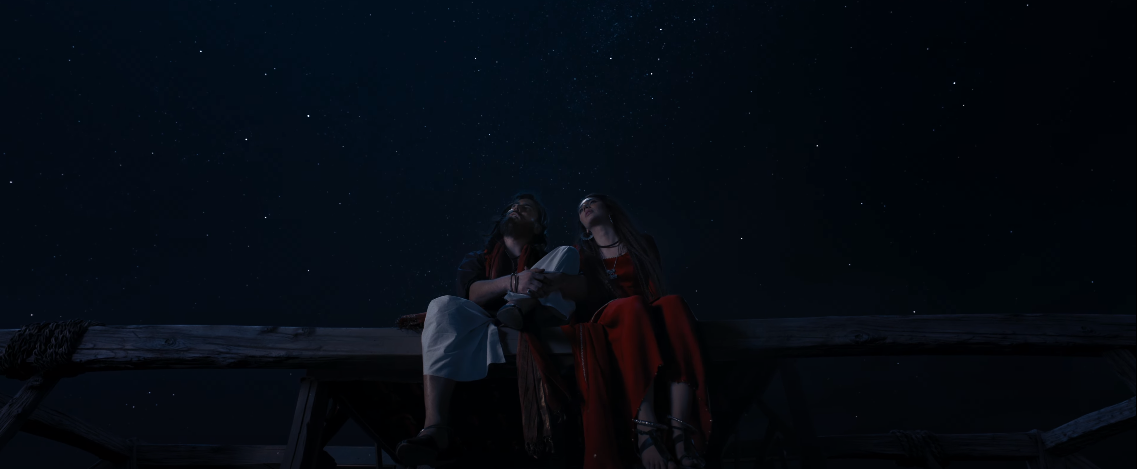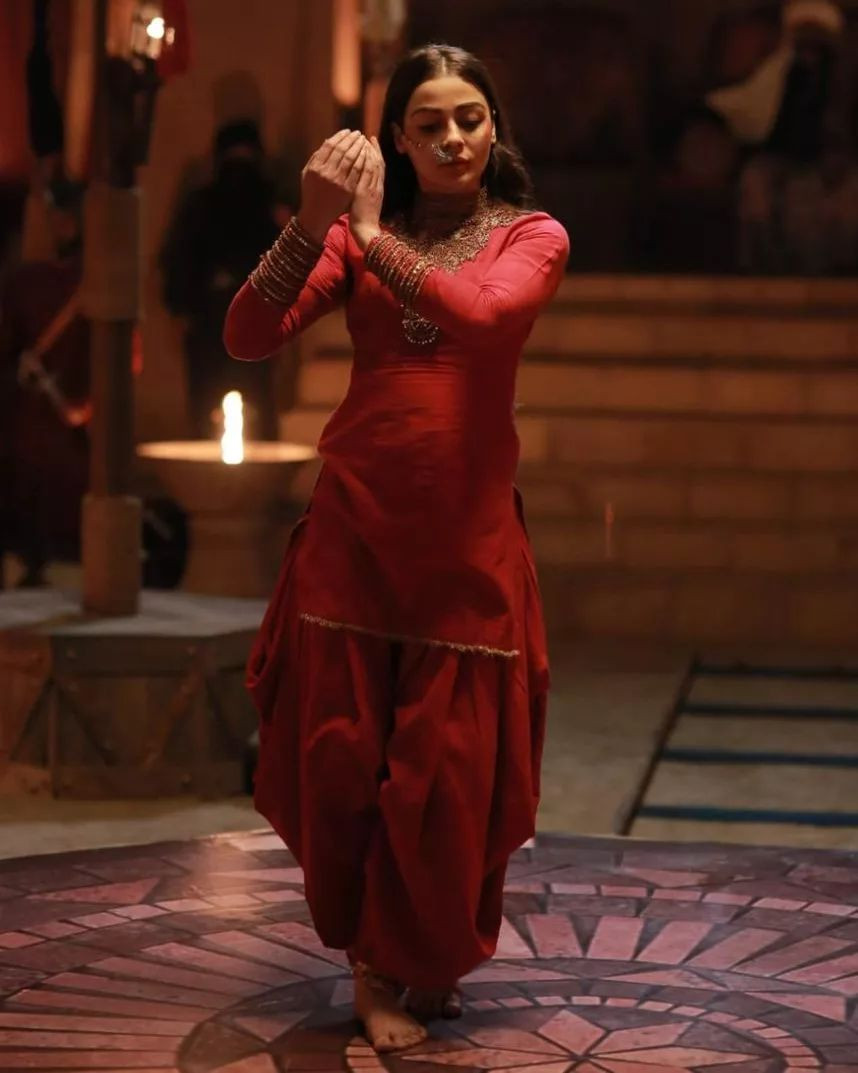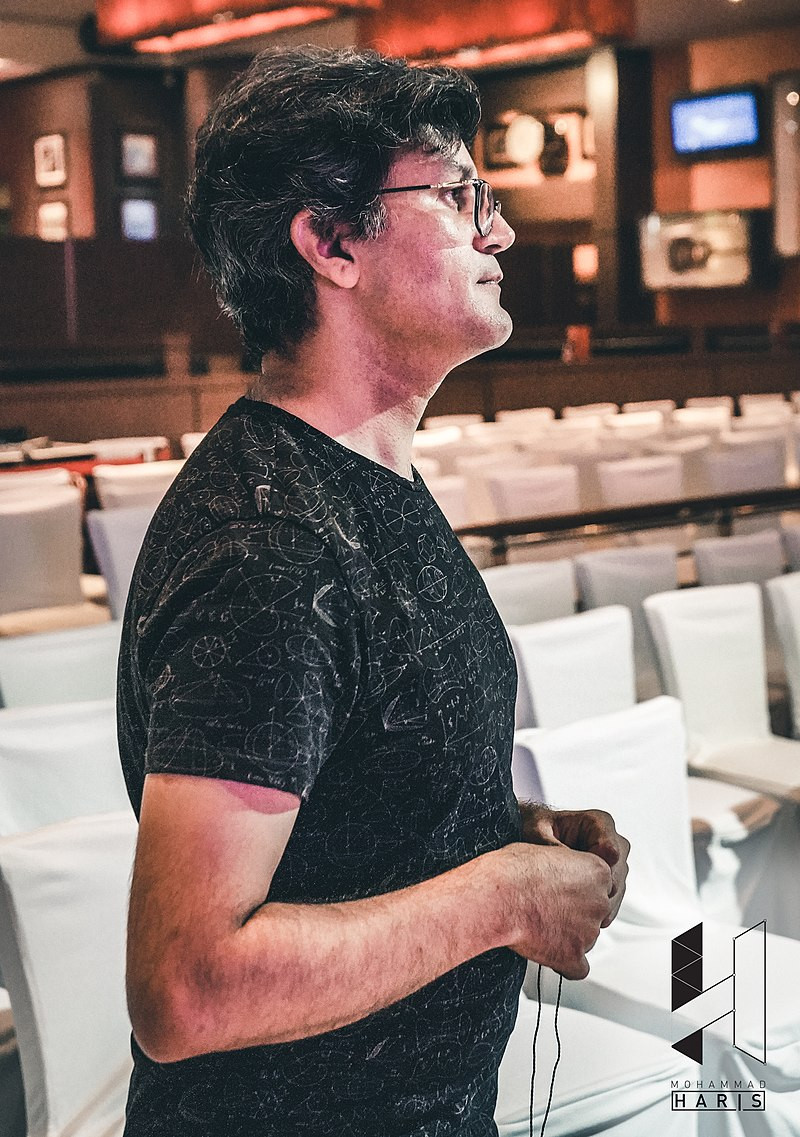
'Chann Pichay' and the mad genius of Sarmad Ghafoor
The singer talked about lending sound to ‘The Legend of Maula Jatt' and making it bigger
KARACHI:
The sound of victory is easy to capture; a bunch of claps, a roar of vengeance, a happy cry and a loud cheer. But what does fear sound like? A lone bird in the sky? The closing of a door or maybe a knock? Perhaps add a few crickets to the equation. But does it sound the same for everyone? Does it even make a difference?
Pakistani films are often lacking when it comes to sound design and score. Having many other accolades to claim, Bilal Lashari's The Legend of Maula Jatt also upped the ante for what a film should sound like. Boasting many memorable performances and moments that weren’t let down by shallow saber-rattling or faint gandasa-slashing – it didn’t become indifferent to even the tiniest of squeaks or frailest of moans of fear, death, and grisly doom.
The moment Mahira Khan's Mukkho started crooning an infectious melody under the moonlight, only to be joined by the ensemble cast accompanied by an orchestral arrangement playing in the background – it all made sense. Sound – a centerpiece in filmmaking, the real hero we’d all been waiting for, had finally arrived. But Chann Pichay is just one of the many stellar musical creations of Sarmad Ghafoor in the film – or otherwise.
Making ‘Maula Jatt’ bigger
A dear friend of Sarmad’s recommended him for Maula Jatt. But he knew Bilal Lashari from way before. “I had worked on a few projects with Bilal. Once, I did a cue for Waar which he really liked. But I was busy on the road and they had a tight timeline so we didn’t end up working on that film. For Maula, it was my dear friend Sameer Shami who pitched me. I really enjoyed working with Bilal on this one. He trusted me completely and there were very few cues that I had to redo,” Sarmad told The Express Tribune.
About the treatment of Chann Pichay, and how it beautifully transitioned from being a ballad to a warning, depending on who’s singing the elegy, Sarmad reflected, “When I was given the lyrics and briefed by Bilal about what he wanted out of it. I knew that the melody needed to be something that would fit everyone, it needed to have a universal appeal. The lyrics talked about the night and how we’ll all be gone and only our stories would remain. It made me feel and think about sleeping forever. That thought made me treat it like a lullaby. To me, it’s like a lullaby changing its character. It goes from romantic to pensive to dark depending on who is singing.”
As for the theatric sans orchestral elements it inculcated, Sarmad held that they were imperative to the narrative. He also confessed it was both his and Bilal’s idea to make the actors sing. “We both agreed that it should be the actors singing these lines. We didn’t want any disconnect between the characters’ reality and the song. Sameer recorded the song when he was doing the ADR. We didn’t want any change of mic or tone between their sung and dialogue voices. We wanted it to be real and raw so we remain in the same world. Very little editing was done to the voices to make sure it stays that way.”
He also revealed what sequences of the film he particularly relished mapping the score for. “I had fun working on the whole film but pieces like Bichoo, Taray, Nathan Di Sardar, Qiyamat Di Nishani and Inteqaam I enjoyed dearly.” Qiyamat Di Nishani features the famous dance of death performed by Saima Baloch towards the end of the film. The piece prepares its listeners for mayhem. The instrumental incorporates various elements, transitioning the tone of the scene from dark and depressing to destructive in mere minutes. 
Sarmad maintains that The Legend of Maula Jatt’s music has stayed with its listeners, despite the film being devoid of any commercial songs, “because the music and scenes work together.” He credited Lashari for designing each scene like a short film. “Almost every scene has an intro, it develops into a climax. This subconsciously made me make the music the same way,” said the guitarist.
A magician in the shadows
Sarmad, an old player in the game is a mainstay in the Pakistani music industry. Be it producing epic hits like Atif Aslam's 2005 sophomore effort Jal Pari, the groove-centric percussiveness of Overload or embodying the heavy riff manic attitude of Qayaas, he has done it all in his illustrious career both as an audio professional and a touring musician.
The record producer, who’s released two albums – one with Rungg and the other with Qayaas – and whose music catalogue also boasts albums he’s produced for other acts, may have chipped in on the soundtrack for Pakistan’s most expensive film yet, but he feels filmmakers are still not paying enough attention to sound design. “Filmmakers still don’t realise how important sound design, audio and music are. Films are made for two senses, sight and sound. They both require the same amount of love and attention. Most films have less than 10% of the budget for the whole of the audio. So, yes audio is not getting the attention it deserves.”

Sarmad, who’s also never spotted on the credits of drama OSTs and is rarely seen reaching out, added, “It’s not by choice. I’ve never chased drama OSTs or any work for that matter. I’d love to work on them. I have done a couple in the past. I don’t remember being without work in the last 15 years or so. Somehow music finds me.” His secret? “At my end, I try to keep up to date with technology, the latest production techniques and music genres. I try to evolve as much as I can as a composer and music producer.”
Speaking of change, Sarmad also shared his take on the changing landscape of the Pakistani music scene and whether he believes the third wave of Pakistani pop music has arrived. “I love the new music scene. The new kids are incredible and I draw a lot of inspiration from their work. I think this is probably the biggest wave in the Pakistani pop music scene. Spotify and other platforms have made it possible for these kids to actually make a living of off their work. Our talent is exposed to the whole world now and they’re getting more and more popular day by day. It’s only going to get bigger.”
The complete soundtrack for The Legend of Maula Jatt by Sarmad Ghafoor is now available on Spotify.
1719921789-0/dua-lipa-(1)1719921789-0-270x192.webp)














COMMENTS (4)
Comments are moderated and generally will be posted if they are on-topic and not abusive.
For more information, please see our Comments FAQ